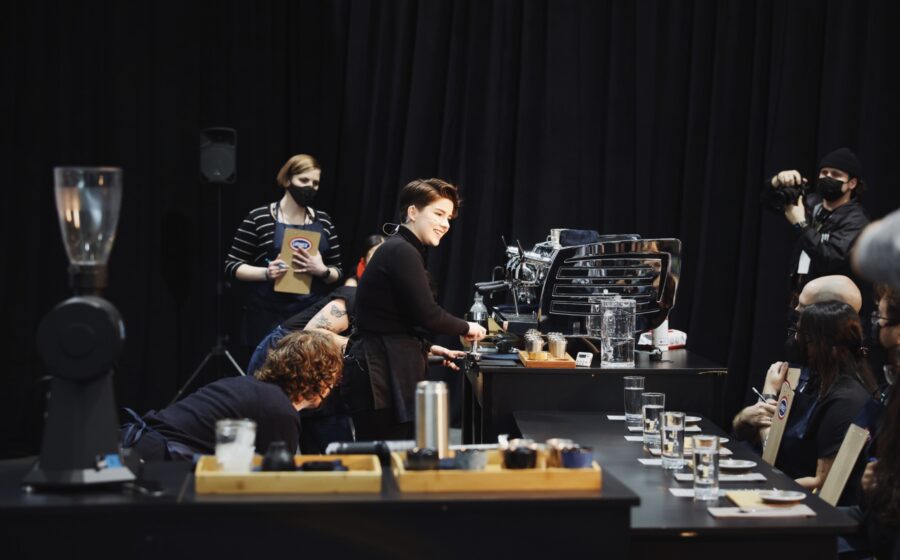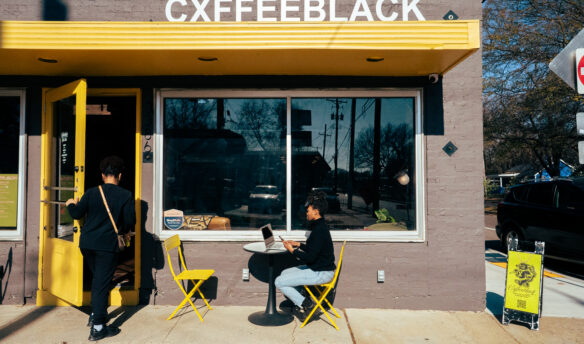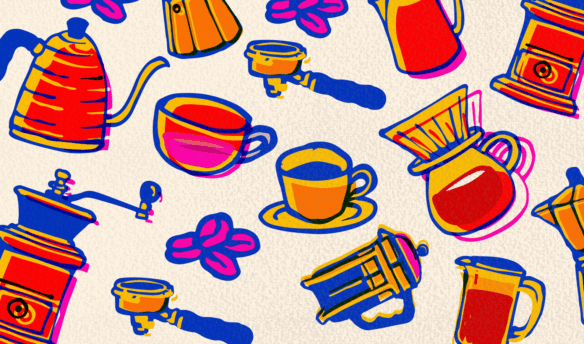Morgan Eckroth began posting videos to TikTok about six years ago. Back then, her account was nothing more than a virtual resume to showcase her digital skills after graduating from college with a marketing degree. But as TikTok became more popular—and thanks to Eckroth’s interest in filmmaking—creating short-form content became a fun side passion that resonated deeply with their followers.
You won’t just find Eckroth on TikTok, however. She’s a bonafide coffee expert and award-winning barista, taking home the top prize at the 2022 United States Barista Championships and representing the U.S. on the world stage later that year. Eckroth has brought their followers (now 6.2 million on TikTok and 1.4 million on YouTube) with them throughout, with videos and content focused on drink creation, hospitality, and education.
In most of their TikTok shorts, Eckroth plays the role of both barista and customer. There’s one video in particular that highlights what Eckroth is trying to do in these skits: As the barista, Eckroth hands a customer a cortado and then goes about cleaning the cafe. The customer (also played by Eckroth) takes a sip of the drink and sets it down. The barista notices, pours a glass of water, and takes it over to the customer. The customer is happily surprised, and thanks the barista.
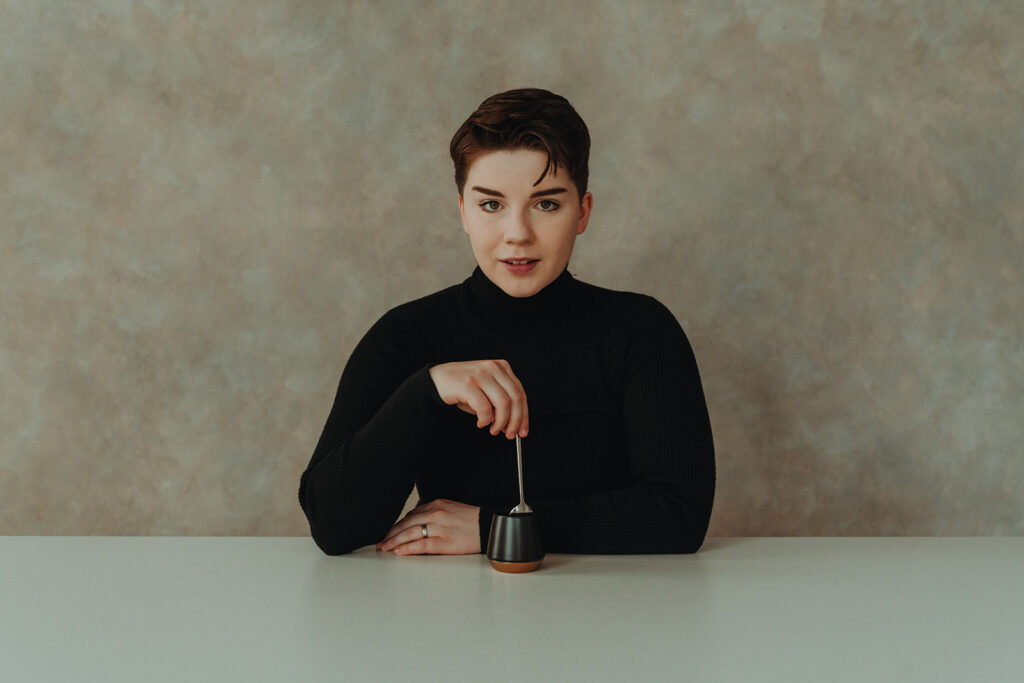
The video might seem like it captures a very small slice of cafe life, but it has more than 1.7 million views and nearly 100,000 likes. The comments section is filled with people who love this act of care, from customers who appreciate the level of service and hospitality to baristas who revel in performing acts that show customers they’re welcome. Many of the comments echo the same sentiment: Eckroth’s videos feel like a warm hug.
Making TikTok videos and digital content is no longer a fun side hobby, but a full-time job for Eckroth. In an industry sometimes pegged as snobbish, and amidst pop-cultural depictions of baristas as surly and unwelcoming, Eckroth is hoping to create a corner of the internet where baristas can be friendly and fun, and foster inclusive spaces that inspire curiosity, one small act at a time.
What were the early days on TikTok like for you?
When I started, there was this very large community of young folks my age who worked in service and hospitality. There was this communal bonding over discussing scenarios and happenings in the service industry.
Initially, @MorganDrinksCoffee was just an outlet for sharing these experiences, and a lot of my content was more sassy. It was not necessarily about looking at the positive side of hospitality, but it was just poking fun at all of it.
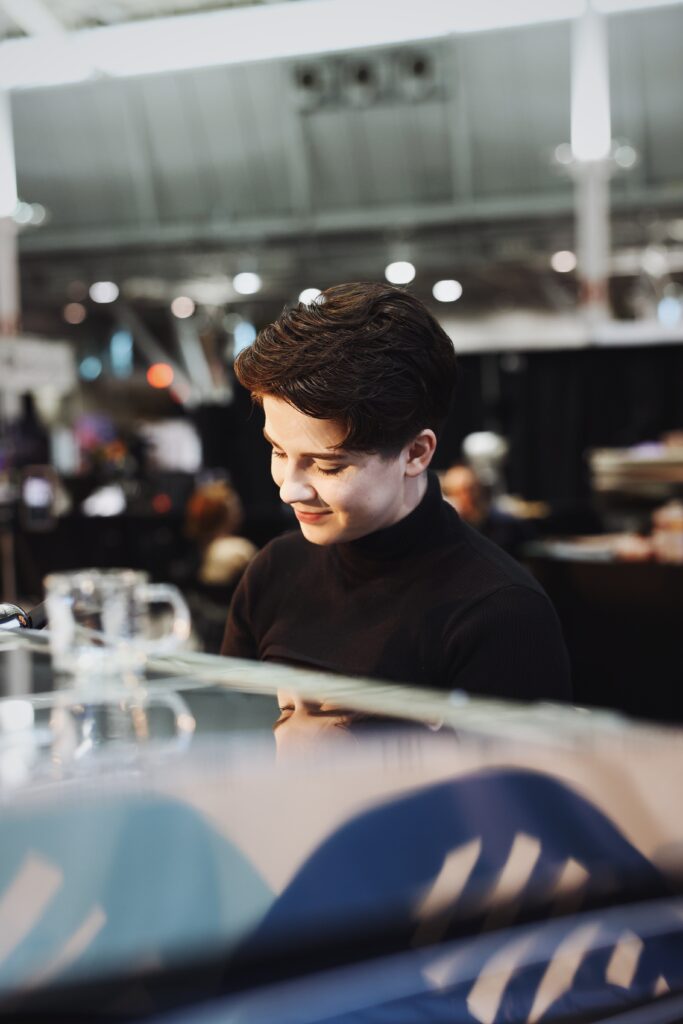
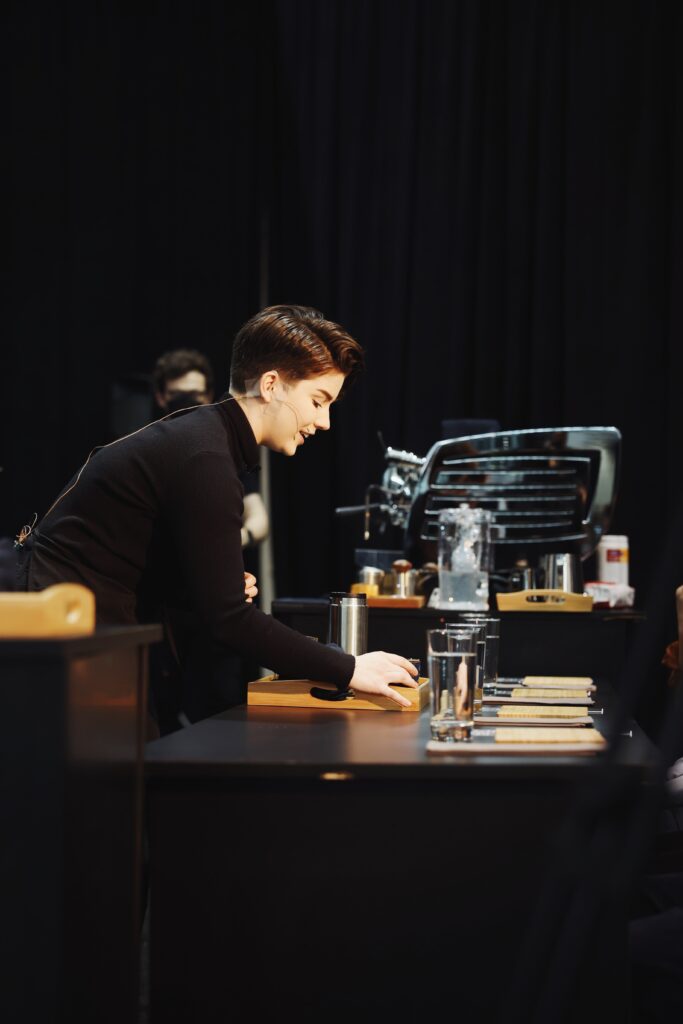
How did the platform begin to shift?
When I started making these barista videos, the comments were often, “Oh, it’s just coffee, it’s not that serious. Don’t be so intense about it.” That’s when I started to try and figure out how to push back on that a little bit, but in a friendly way. If you choose to care about your work, it can be so much more than just a little phase in your life that you pass through while in school or something like that.
There is always this idea that you need a lot of understanding [of coffee] to get started, but you don’t. Once you get into it and start taking it seriously, you begin to develop both the soft skills of hospitality plus the hard skills of coffee, brewing, drink creation, etc. It’s a lot of information and a lot of time to become really good at it.
How have you tried to shift the idea that “it’s just coffee”?
One of the things that I had to do was reckon with my content. About two and a half years ago, I made the transition from making lighthearted, pointed content to something a little bit more empathetic—a bit more human-driven rather than the flashy Internet comedy sort of sector.
I could talk about coffee science and brewing all day long, but the engagement I was getting on those pieces was so much less because they almost feel like lessons. So that’s when I started focusing on the softer side of things, more of the hospitality side of coffee and barista work.
The sketches took a sharp turn into something a lot more of an everyday type of experience, things that if you experienced them in a cafe, you would leave that space saying, “I feel better.” I think it was one of the first really big shifts I took to hopefully broaden others’ understanding of barista work.
What was the response like?
Everyone was so confused. It was honestly my favorite thing. I still get comments like this to this day, but in the beginning, there were a lot of people saying things like, “This is making me feel something, but I don’t know what it’s making me feel. I’m crying, and I don’t know why.”
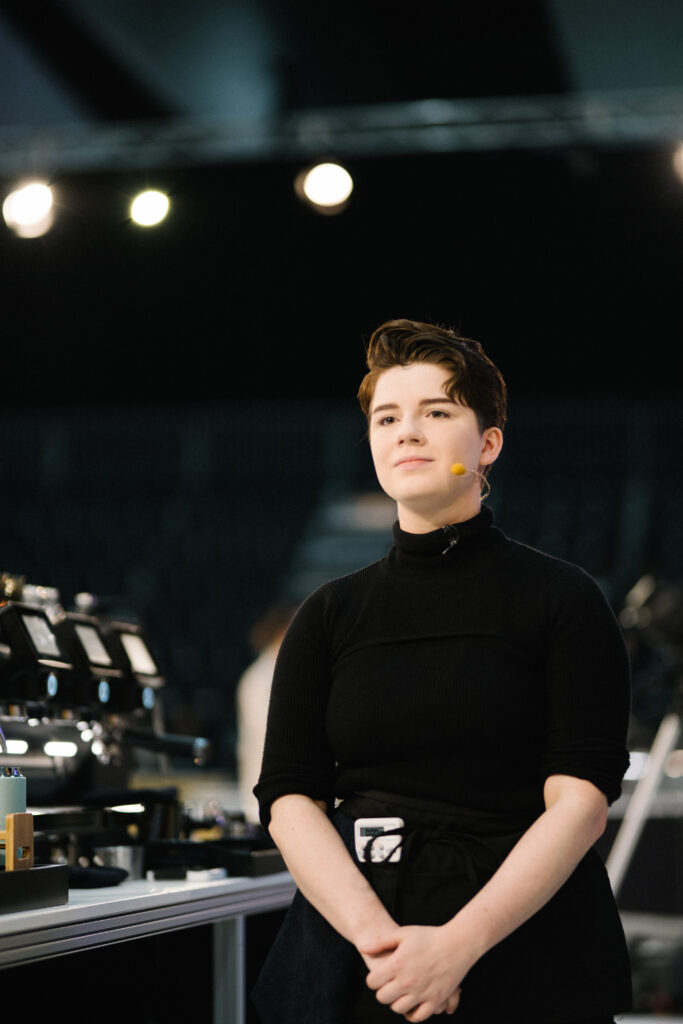
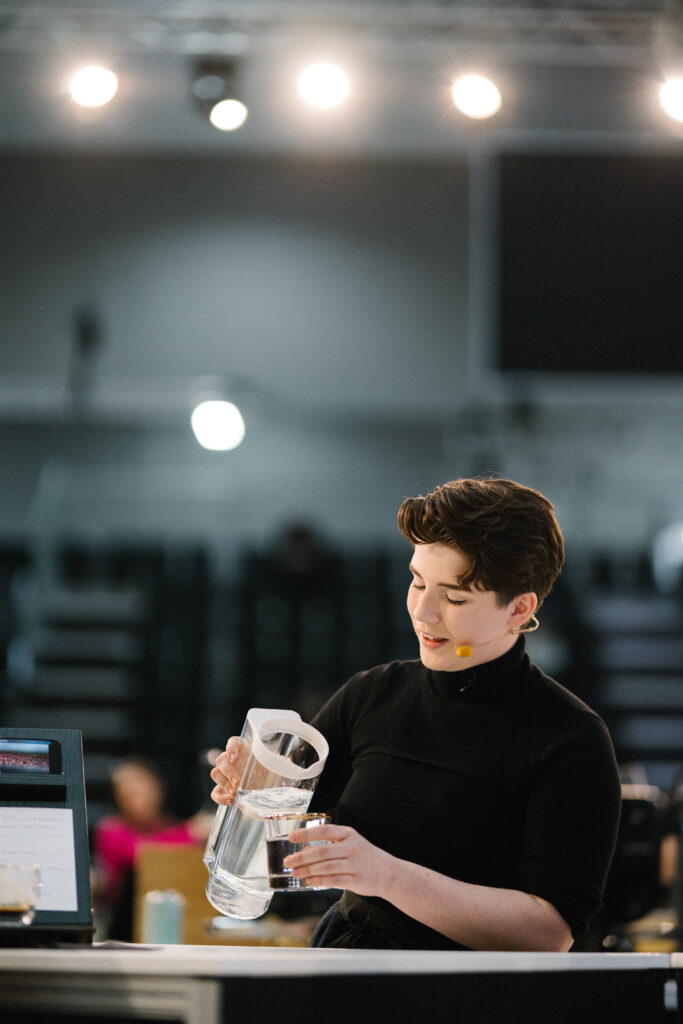
All of these videos are based on real events. I don’t think I’ve ever made a single video that hasn’t either happened to me or that I’ve seen done in a cafe or I’ve done as a barista. They’re all very real moments.
It’s about highlighting the foresight necessary in hospitality. It’s about noticing the intention and the skill that goes into creating those moments. My goal with my content is that people can walk away and then the next time they have something like that happen to them, there’s a greater recognition or appreciation—where we’re just looking out for each other and taking care of each other.
Your videos are so joyful and kind. Have viewers ever shared what your videos mean to them? What has your experience been as the content creator, and seeing the impact you’ve made?
Some of the most special comments have been ones where someone says, “Hey, I’ve been following for X amount of years, and I’m starting my first barista shift today.” It always makes me a bit emotional—and stuff like that makes this all feel a little more real. I think at some point, it can feel like we’re just making content, but it all has real-world impact.
It’s also really fun to encourage discussion, especially on places like YouTube. Coffee is such a global and cultural force that when I’m showcasing different brewing methods, I aim to create a conversation because we’re all coming to it from different perspectives. I don’t ever want to present what I’m doing as the one way—I also want to hear how you do it. As a result, I’m constantly learning from my audience.
What is something you have learned from your audience?
Maybe this is a small thing, but one of my favorite things I’ve done in the last few years is look at cultural coffee drinks. Like a cafe Cubano or other foundational coffee drinks from around the world.
I do my research and present it as equitably as possible, but one of my absolute favorite things is to dig into comments and see everyone’s variations afterward, like how their grandmother made it, or how they make it with a slightly different coffee—and then getting to go back to my studio and make all those different versions. It’s really one of the best parts.
How do you try to push people to see coffee as something more than just a drink?
It’s a slower process than anyone wants it to be. I believe the root of all of it is storytelling and getting people to create spaces where people can tell their own stories.
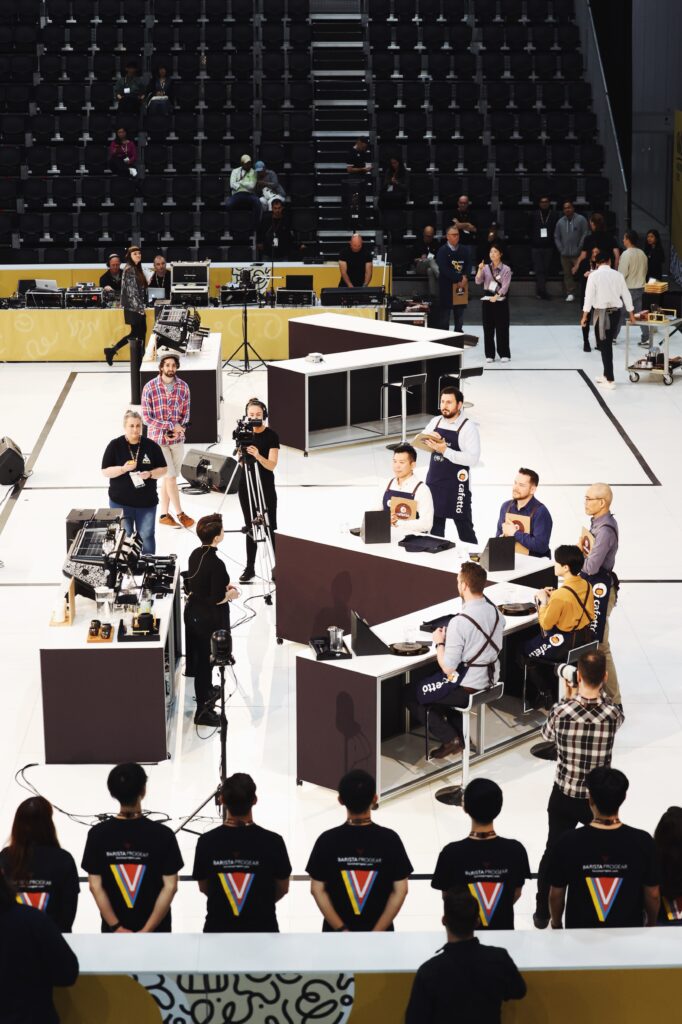
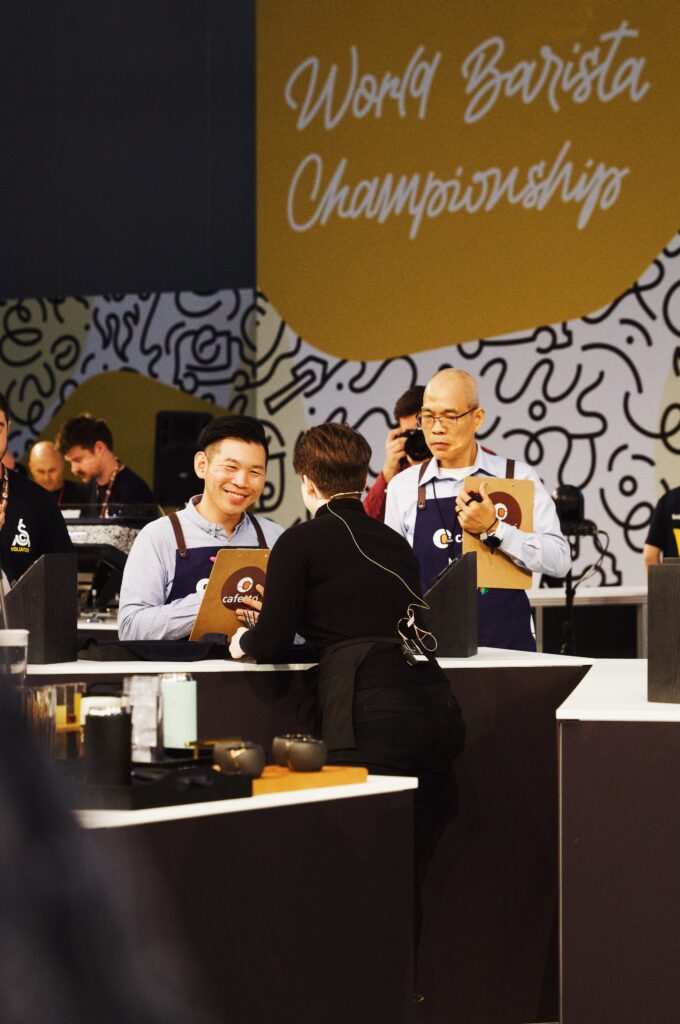
But alongside that, and especially in the marketing world, everything is so media-driven that there are all these algorithms you have to play with. There are all these rules when creating content—there are so many other boundaries you have to work within while also trying to create freedom for people to just share what they want to share.
I think being story-driven in a way that gives something back to the consumer is very, very important. It is one of the principles that I try to always implement in content. No matter if it’s for a brand or for myself, there needs to be an equal trade between the content and the consumer of the content. Whatever strategy you’re implementing, there has to be something given back. And I think that sort of balance is hard to achieve, but is very, very important to making people care, especially about coffee.
One of my goals next year is to start building out my website to be much more of an education hub and have unique content that is solely education-focused outside of the algorithm that people can go to and actually use.
If you didn’t have to focus so much on the algorithm, do you think you’d focus more on education?
I dream of that! I think my content would shift if I didn’t have to care quite as much. It’s such a dream to not be at the whims of the algorithm. One of the tricky parts about MorganDrinksCoffee as a brand is that there has to be some level of my face being attached to things.
But on my end, what I am really interested in moving into, and what I’m slowly working towards as we figure out what MDC looks like, is content that is able to showcase other people’s stories. I still want to be the creative force behind the content creation, the videography, and all of that storytelling, but then also lean on and showcase the expertise of others and use that to lean more into education.
That’s what I’m really interested in and passionate about right now. But, again, playing within the rules of the game.

